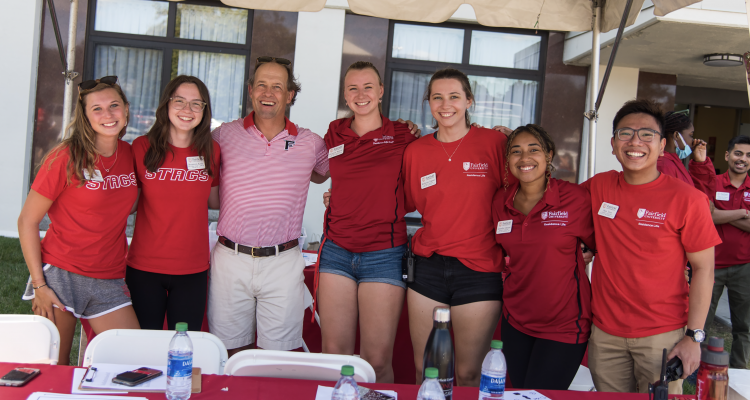Popularity is a universal topic across many high schools; everyone knows what it is. High schoolers change the way they dress, how they act and who they socialize with in order to increase their social standing, which is the sad truth.
Merriam-Webster defines “popular” as being “frequently encountered or widely accepted,” and “commonly liked or approved.” This seems like the way that high school students operate, with the goal of being the most well known among their classmates or the most widely accepted by their peers.
In college, however, the dynamic is reversed. People act the way they want to act, unapologetically, as college is a time where people begin to find their true identity. At most large schools, popularity may exist to a certain extent; with fraternities and sororities, there may be more of a social hierarchy where people feel pressured to act a certain way in order to appeal to higher-ups.
Fairfield University doesn’t have any Greek life, which, in my opinion, is a good thing. But I digress; popularity does not exist inside the gates of Fairfield University.
Each and everyone here has their own “thing”; by this, I mean everyone is involved in some way. Each group or club has a diverse group of people in it that is not preoccupied about where each person ranks in that club or group.
Especially in college, with a much larger group of people than a high school class, everyone brings something unique to the table. And in the first few weeks of college when everyone is meeting new people, students embrace the uniqueness of others, and use this to build relationships and friendships.
With a school the size of Fairfield that has 1,000 students per class give or take, individuals will find their group of friends based on the unique interests they have. Even if you are interested in something that you think is “weird”, there is a high chance that a group of people will share the same, “weird” things you like.
Throughout my time at Fairfield, I have found that no one really cares about those weird quirks. Everyone has a few guilty pleasures or things they do that may be different from everyone else, but college is a time to celebrate these differences and learn about different backgrounds of fellow students rather than putting others down.
Of course, some could argue that popularity does exist at Fairfield to an extent. Some people worry that if they don’t post the picture they got from the party at the Townhouses last Saturday, their fellow peers will see them as uncool. In reality, it just does not matter, as long as you are being yourself and staying true to yourself.
This dynamic we have at Fairfield, though, is a good thing for our school’s students. With a system of popularity being in place, students would feel as though they have to do things in order to keep their social standing afloat; in my personal experiences, I have never felt like I was forced to do things to keep a certain level of popularity.
Popularity is a really interesting concept that I have always worried about throughout my time in high school, but it is something that has never really crossed my mind throughout my time at Fairfield University. I do not think popularity exists at Fairfield, and I think that it becomes a generally irrelevant concept once a student matriculates into college.


Leave a Reply